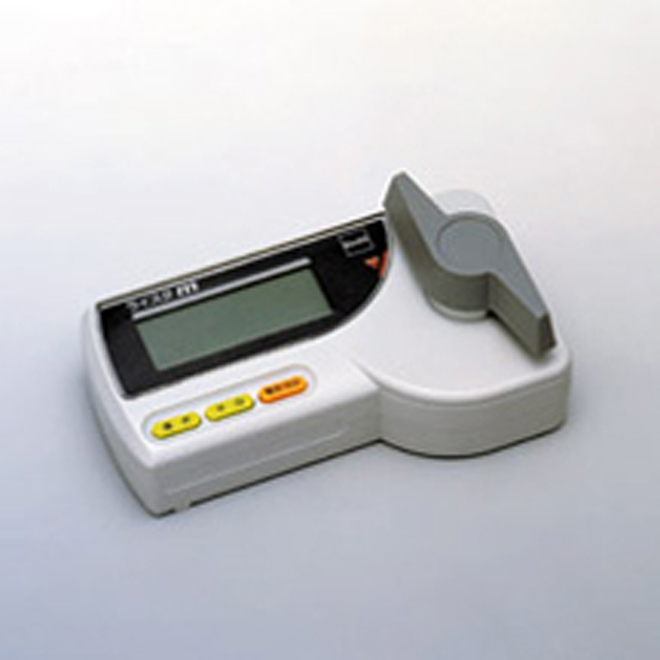The Ultimate Guide to Wetness Meters: A Comprehensive Summary and How They Can Conserve You Cash
Dampness meters serve as vital tools in spotting and keeping track of moisture material in products, assisting in preventing pricey problems and ensuring the quality of items. Recognizing the nuances of different kinds of moisture meters, their applications, and the prospective cost-saving benefits they offer can be a game-changer for companies and specialists alike.
Sorts Of Moisture Meters
One common kind is the pin-type wetness meter, which measures the electric resistance between two pins inserted right into a material. Pinless moisture meters, on the various other hand, usage electro-magnetic sensing unit plates to check a bigger location without triggering damages to the material's surface.

Infrared dampness meters measure the thermal homes of a product to determine its moisture content non-invasively, making them beneficial for applications where pin or pinless meters may not be appropriate. Recognizing the different kinds of wetness meters offered can assist markets choose the most proper tool for their details wetness dimension demands.

Advantages of Making Use Of Moisture Meters
Moisture meters provide important benefits in precisely keeping track of and assessing moisture levels in varied products and settings (Moisture Meter). Among the key advantages of using moisture meters is the avoidance of potential damages brought on by excess moisture. By detecting and attending to high dampness degrees early on, dampness meters aid to stop mold and mildew development, rot, and architectural damages in structures, saving both time and cash on repairs. In addition, dampness meters help in making sure the high quality of products during building or production processes. By precisely gauging dampness content, these tools help preserve the stability of timber, drywall, concrete, and other products, minimizing the danger of failings or defects.
Moreover, utilizing moisture meters can bring about raised energy performance. By determining locations with high wetness levels, such as leaks or inadequate insulation, adjustments can be made to enhance power conservation and lower energy expenses. In farming settings, dampness meters play a vital role in optimizing plant returns by making it possible for farmers to keep track of soil wetness degrees and make informed irrigation choices. On the whole, the advantages of using moisture meters span throughout numerous sectors, offering affordable solutions and promoting much better top quality control techniques.
How to Pick the Right Wetness Meter
Selecting the ideal dampness meter entails considering vital factors such as material compatibility, measurement variety, and calibration accuracy. When choosing a moisture meter, it's crucial to guarantee that the meter is suitable for the particular material you will certainly be testing. Various products have differing electrical buildings that can affect moisture readings, so picking a meter created for your product is critical for accurate results. Additionally, consider the dimension series of the dampness meter. Make sure that the home meter can discover dampness degrees within the variety needed for your applications. Calibration precision is one more crucial factor to keep in mind. Choose a moisture meter with trustworthy calibration to make sure exact and regular analyses. Some meters might call for regular calibration modifications, so understanding the calibration process is essential. By very carefully assessing these factors, you can select a wetness meter that fulfills your requirements and provides precise dampness dimensions for your tasks.
Correct Methods for Dampness Meter Use

Expense Cost Savings With Moisture Meter Applications
Just how can the calculated use of dampness meters lead to considerable cost savings across different sectors? In the agriculture sector, dampness meters aid in figuring out the optimum time for gathering crops, preventing over-drying or excess moisture that can affect the last item's top quality.
Likewise, in building and construction, wetness meters help prevent pricey damages by identifying dampness levels in structure products, such as timber or concrete, which can cause architectural problems if not dealt with without delay. By site determining issue locations early, contractors can take restorative measures to prevent considerable fixings or replacements, ultimately conserving money and time.
Moreover, in the food processing market, moisture meters are essential for monitoring product top quality and making sure compliance with security laws. By accurately gauging moisture material in food items, makers can stop perishing, maintain quality, and minimize waste, leading to substantial expense savings. In general, the tactical application of moisture meters is an important financial investment that can bring about significant cost decreases and boosted effectiveness throughout different markets.
Verdict
In verdict, wetness meters are important tools for discovering and determining dampness levels in various products. By utilizing the appropriate dampness meter and following correct strategies, individuals can properly avoid expensive problems created by excess moisture.
Wetness meters serve as crucial tools in identifying and keeping track of moisture material in materials, assisting in stopping costly problems and ensuring the top quality of products. Infrared wetness meters measure the thermal residential properties of a product to establish its moisture material non-invasively, making them beneficial for applications where pin or pinless meters may not be appropriate.Wetness meters offer invaluable benefits in accurately checking and analyzing moisture levels in diverse products and settings. In farming settings, moisture meters play a crucial duty in maximizing crop yields by enabling farmers to keep track of dirt wetness degrees and make notified watering choices.In final thought, moisture meters are valuable devices for finding More hints and gauging wetness levels in numerous products.